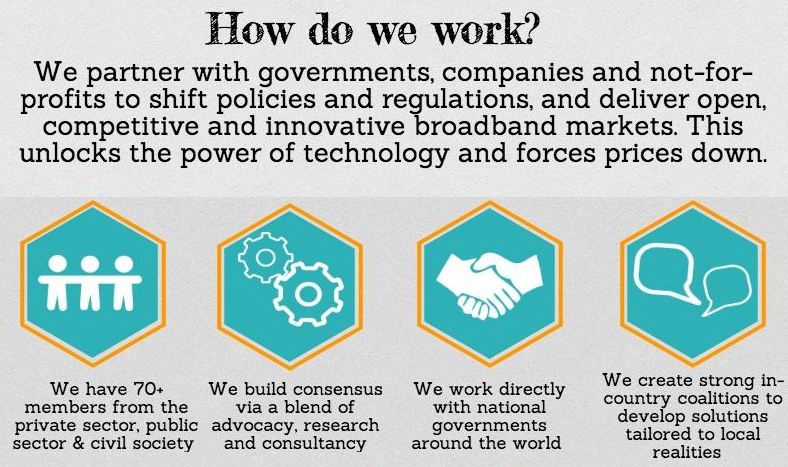
At the Alliance for Affordable Internet (A4AI), our approach to increasing access to affordable Internet in emerging economies across the globe is focused upon policy and regulatory reform. But what exactly do we mean by “policy” and “regulation”? And how do we determine what constitutes an effective policy and regulatory framework?
The below excerpt from our 2014 Affordability Report — released in March of this year — sheds some light on these questions.
Policy
A policy framework provides a vision of the ICT sector with specific guidance for achieving that vision. Policies are established at the Ministerial level and generally establish principles and strategic objectives for the sector — for example, opening market structure, accelerating rollout of broadband networks, developing relevant applications and content, and facilitating adoption and use. Guidance is then provided on how to achieve the strategic objectives — this may include increasing competition, improving sector governance, reorganising state-owned operators, and extending service to under-served areas.
Regulation
Regulation involves the design and enforcement of legal instruments to establish the rules of the market and implement the strategic objectives established by the policy. For example, to ensure increased and effective competition, regulators need instruments that facilitate market entry (e.g., technology and service-neutral licensing regimes), as well as instruments that define a clear scope for intervention should anti-competitive behaviour be identified (e.g., regulations that require ongoing market analysis, and outline the regulatory intervention necessary if an operator is determined to have Significant Market Power).
Effectiveness
Many countries adopt the right policies and regulations, but fail to implement and enforce them in a strategic and planned manner. Others are still far from achieving a policy and regulatory framework that is both forward-looking and coherent with the pace of development in the sector. This is often due to insufficient oversight or regulatory development. For example, while many countries have developed broadband or ICT policy and strategies, the implementation of such policies and plans has been slow at best. Our research attempts to assess not only the existence of such policies and plans, but also, and most importantly, the implementation and impact of such programmes.
The Affordability Report underscores the importance of effective broadband policies and plans for enabling affordable Internet, and highlights Costa Rica and Nigeria as two countries with effective and comprehensive frameworks in place. To learn more about effective broadband strategies, and which policies and regulations promote affordable Internet, read the full Affordability Report and explore the data.
Comments are closed.
